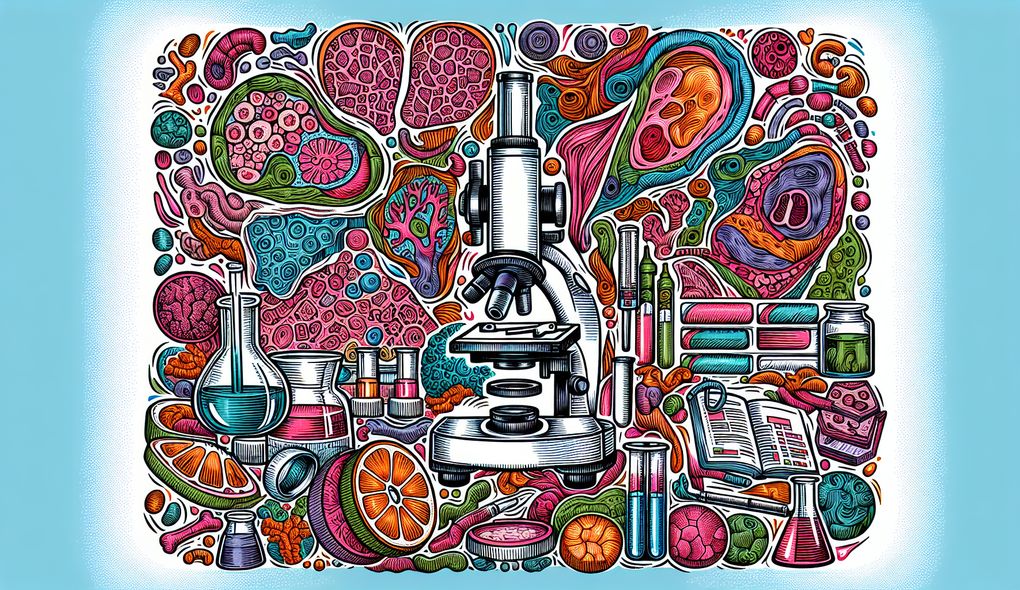Can you discuss your knowledge and experience with laboratory safety protocols and procedures?
JUNIOR LEVEL

Sample answer to the question:
Yes, I have knowledge and experience with laboratory safety protocols and procedures. In my previous role as a junior pathologist, I was responsible for following and promoting these protocols to ensure a safe working environment. I have a strong understanding of the importance of laboratory safety and the potential risks associated with handling hazardous materials. I always wore appropriate personal protective equipment, such as gloves and lab coats, and followed proper disposal procedures for biohazardous waste. Additionally, I participated in regular safety training sessions and maintained an up-to-date knowledge of safety guidelines and regulations. Overall, I am confident in my ability to adhere to laboratory safety protocols and ensure a safe working environment.
Here is a more solid answer:
Yes, I have extensive knowledge and experience with laboratory safety protocols and procedures. Throughout my residency program in pathology, I received thorough training and education on laboratory safety practices. I am well-versed in the proper implementation of safety protocols, including the use of personal protective equipment and the disposal of biohazardous waste. I strictly adhere to safety guidelines and regulations to ensure a safe working environment for myself and my colleagues. For example, during my autopsies, I always wore gloves, lab coats, and face shields to protect against potential biohazards. I also actively participated in safety training sessions and consistently sought to expand my knowledge on the latest safety protocols. Overall, my commitment to laboratory safety is unwavering, and I prioritize it in every aspect of my work.
Why is this a more solid answer?
The solid answer expands on the candidate's knowledge and experience with laboratory safety protocols and procedures. It provides specific details and examples to support their claims, demonstrating a strong understanding of safety practices. However, it could still benefit from further elaboration and additional examples to make it even more comprehensive.
An example of a exceptional answer:
Absolutely! I consider laboratory safety protocols and procedures to be of utmost importance in my work as a pathologist. With my deep understanding and extensive experience, I am confident in my ability to ensure a safe working environment for myself and others. Throughout my residency program, I underwent comprehensive training on laboratory safety, covering topics such as risk assessment, proper handling of hazardous materials, and emergency response procedures. I have a thorough understanding of the potential risks and hazards associated with working in a laboratory and have consistently implemented effective safety measures. For instance, I always double-check the compatibility of chemicals before using them, and I regularly inspect and maintain safety equipment, such as fume hoods and fire extinguishers. Additionally, I actively participate in safety committees and contribute to the development of safety protocols and guidelines within my department. I stay up-to-date on the latest research and advancements in laboratory safety, attending conferences and workshops to enhance my knowledge. By prioritizing laboratory safety at all times, I strive to create a culture of safety and ensure the well-being of everyone in the lab.
Why is this an exceptional answer?
The exceptional answer provides a comprehensive and detailed response to the question. It goes above and beyond in describing the candidate's knowledge and experience with laboratory safety protocols and procedures. The answer includes specific examples of the candidate's involvement in safety committees and their commitment to staying updated on the latest safety advancements. The answer also highlights their proactive approach to maintaining safety equipment and creating a culture of safety. Overall, the exceptional answer demonstrates a deep understanding and strong commitment to laboratory safety.
How to prepare for this question:
- Review and familiarize yourself with laboratory safety protocols and procedures, including proper handling of hazardous materials and emergency response procedures.
- Reflect on your past experiences where you have followed laboratory safety protocols and procedures and be prepared to discuss specific examples.
- Stay updated on the latest research and advancements in laboratory safety through attending conferences, workshops, and reading scientific literature.
- Consider joining safety committees or participating in safety-related initiatives to demonstrate your proactive approach to laboratory safety.
- Practice explaining your knowledge and experience with laboratory safety protocols and procedures in a concise and confident manner.
What are interviewers evaluating with this question?
- Knowledge of laboratory safety protocols
- Implementation of laboratory safety protocols
- Understanding of potential risks and hazards
- Use of personal protective equipment
- Proper disposal of biohazardous waste
- Participation in safety training
- Knowledge of safety guidelines and regulations

